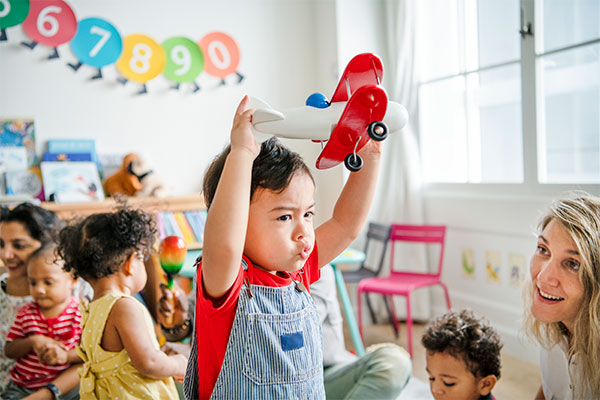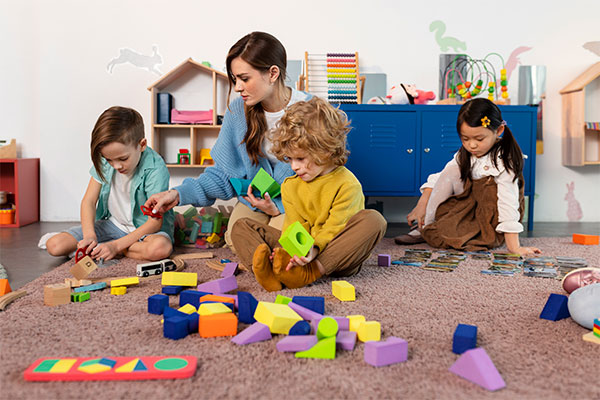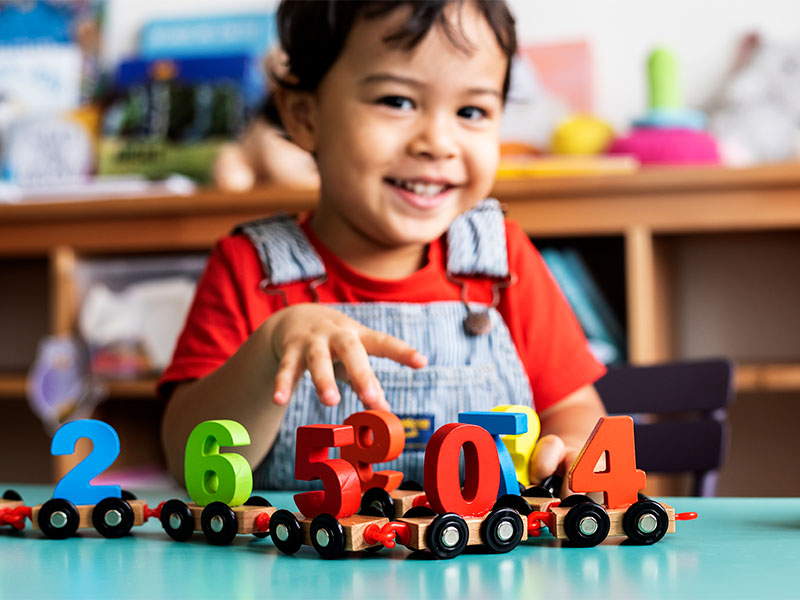As parents, witnessing the first steps of our children into the world of education is both thrilling and bittersweet. The transition to preschool marks a significant milestone in a child’s life, laying the foundation for future learning experiences. Ensuring a smooth and positive start to this educational journey requires thoughtful preparation. In this guide, we will explore practical strategies and tips on how to prepare your child for preschool, making this transition a joyous adventure for both parent and child.
Understanding the Importance of Preschool:

Before delving into the preparation process, it’s crucial to recognize the importance of preschool in a child’s development. Preschool provides a structured environment where children not only learn academic fundamentals but also develop essential social and emotional skills. Early exposure to a classroom setting fosters independence, curiosity, and a love for learning. Therefore, preparing your child for preschool goes beyond academic readiness; it involves nurturing their overall well-being.
Practical Strategies for a Seamless Transition:

- Establishing a Routine:
Begin by gradually introducing a routine that mimics the preschool schedule. Establish consistent wake-up times, meal routines, and designated play and learning periods. This helps your child become accustomed to a structured day, making the preschool transition smoother.
Visit: tips for working parents
2. Encouraging Independence:
Foster a sense of independence in your child by encouraging them to complete simple tasks on their own, such as dressing, washing hands, or tidying up toys. This not only builds confidence but also prepares them for the self-help skills expected in a preschool environment.
Socializing Opportunities:
Arrange playdates with other children to expose your child to social interactions. Engage in activities that encourage sharing, taking turns, and communication. This helps develop essential social skills crucial for a positive experience in a group setting.
4. Reading Together:
Cultivate a love for reading by incorporating daily reading sessions into your routine. Choose a variety of books that explore different themes, emotions, and experiences. Reading together not only enhances language skills but also provides an opportunity for bonding.

5. Introducing Basic Concepts:
Incorporate basic academic concepts into everyday activities. Counting during playtime, identifying colors during meals, and discussing shapes during walks are simple yet effective ways to introduce foundational concepts in a fun and interactive manner.
6. Visit the Preschool:
Arrange a visit to the preschool with your child before the official start date. Familiarizing them with the physical environment, meeting teachers, and exploring the classrooms can alleviate anxiety and create a sense of comfort.
7. Positive Reinforcement:
Use positive reinforcement to associate positive feelings with the idea of preschool. Praise your child for small achievements, and discuss the exciting aspects of attending preschool, such as making new friends and engaging in creative activities. Ignite a journey of self-discovery early on! Premium personality development classes are designed to nurture confidence, communication, and character in the formative years.
8. Communication Skills:
Encourage your child to express themselves verbally. Practice active listening and respond attentively to their thoughts and feelings. This not only enhances communication skills but also helps your child feel more confident expressing themselves in a group setting.
Visit: healthy lifestyle tips
Emphasizing Emotional Preparedness:
While academic readiness is crucial, emotional preparedness is equally significant in ensuring a successful transition to preschool. Here are some strategies to support your child’s emotional well-being:

- Open Dialogue:
Create an open and supportive environment for your child to express their feelings about starting preschool. Acknowledge their emotions, whether it’s excitement, nervousness, or a mix of both, and reassure them that it’s okay to feel this way. Give your child the gift of self-assurance! Personality Development for Kids program is a fun and interactive way to instill vital life skills, preparing them for a bright and confident future.
2. Read Books About Starting School:
Choose books that explore the theme of starting school. Reading such books together can help your child understand that many children go through the same experiences and build anticipation for the exciting adventures that await them.

3. Create a Transition Object:
Consider creating a special item, such as a small toy or a comforting blanket, that your child can bring to preschool. This transitional object can provide a sense of familiarity and comfort during the initial days.
4. Establish a Goodbye Routine:
Work with your child to create a special goodbye routine. Whether it’s a hug, a high-five, or a special phrase, having a consistent farewell ritual can provide reassurance and make farewells less stressful.
Visit: how to handle arrogant child
5. Encourage Problem-Solving:
Teach your child simple problem-solving strategies. Preschool may present new challenges, and having the ability to think critically about solutions contributes to a child’s sense of competence and self-efficacy.
Conclusion: How to Prepare Your Child for Preschool?
In conclusion, the journey to preschool readiness involves a holistic approach that addresses both academic and emotional preparedness. By establishing routines, encouraging independence, fostering social skills, and emphasizing emotional well-being, you equip your child with the tools needed to thrive in a preschool environment.
Visit: personality development games for kids
As parents, our role in this transition is not just about preparing our children for the academic aspects of preschool but also nurturing their emotional resilience and enthusiasm for learning. So, how to prepare your child for preschool? The answer lies in fostering a love for learning, cultivating social skills, and creating a supportive environment that celebrates their unique journey into the world of education. With thoughtful preparation and a dash of excitement, the preschool experience can become a cherished chapter in your child’s educational adventure.

